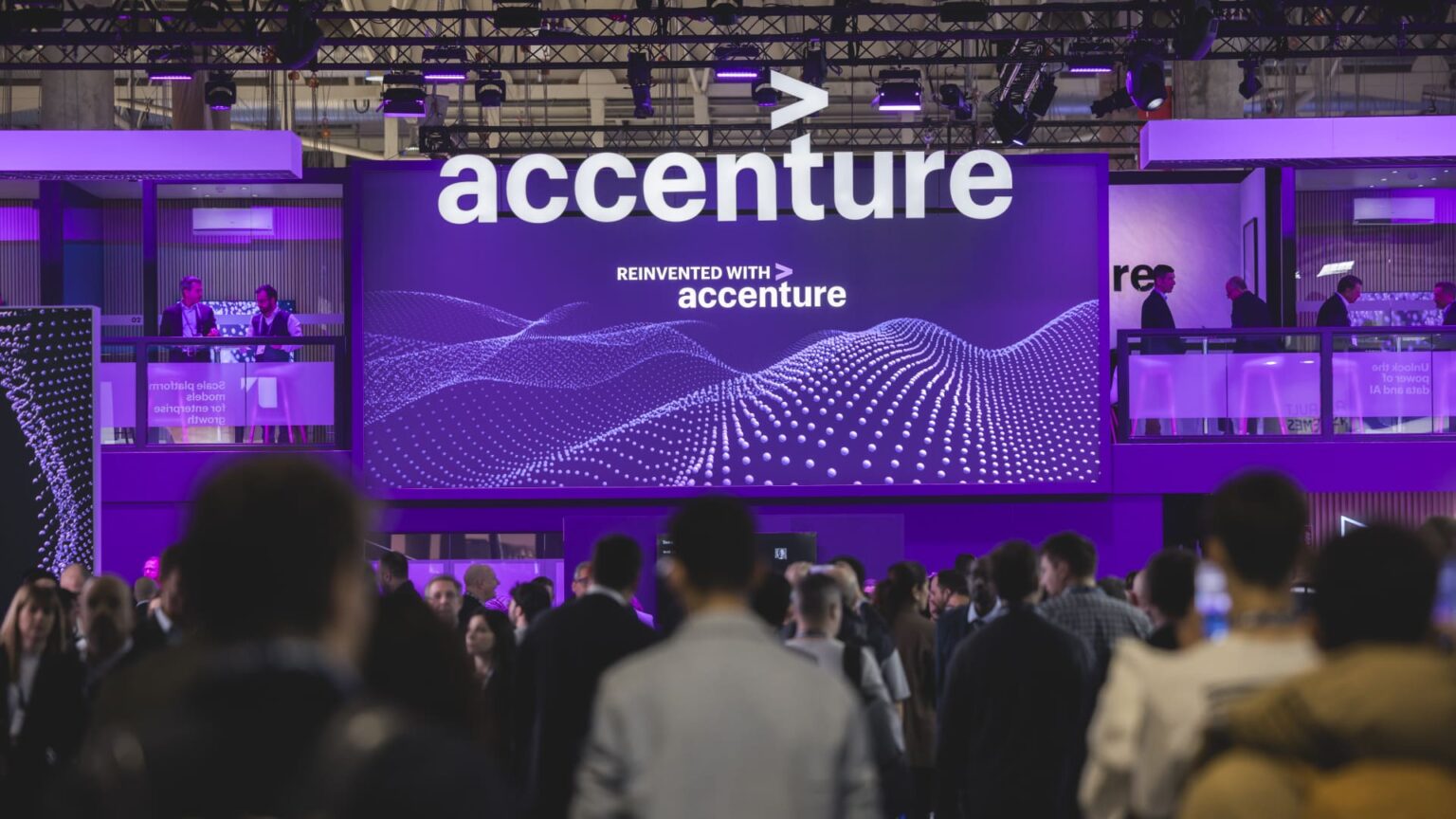Tech consultancy Accenture has announced a major restructuring initiative focusing on artificial intelligence (AI), which may lead to staff layoffs for those unable to adapt to new roles. CEO Julie Sweet emphasized the critical need for employees to reskill in response to the increasing integration of AI within the company’s operations. This move coincides with substantial investments aimed at optimizing business processes and expanding the AI talent pool, which has already seen a significant increase over recent years.
| Article Subheadings |
|---|
| 1) Accenture’s Shift Towards AI |
| 2) The Upskilling Strategy |
| 3) Financial Implications of the Restructuring |
| 4) Current Workforce and Future Hiring Plans |
| 5) Leadership Insights on Market Trends |
Accenture’s Shift Towards AI
Accenture’s recent announcements reveal a strategic pivot towards artificial intelligence, reflecting broader industry trends where AI technology is becoming integral to business operations. With growing client demand for AI solutions, Accenture positions itself not just as a consultancy but as a pivotal technology partner. This shift is seen as a response to the accelerating adoption of AI by organizations worldwide that recognize its potential for enhancing productivity and efficiency.
In a call on Thursday, CEO Julie Sweet articulated how advanced AI is now a fundamental element of company operations, stating, “As advanced AI becomes a part of everything we do.” This approach aligns with the increasing emphasis on digital transformation, where leveraging AI capabilities can provide competitive advantages.
The Upskilling Strategy
Central to Accenture’s restructuring is its commitment to employee upskilling. The company has laid out plans to reskill 550,000 employees in the fundamentals of generative AI as it prepares for future business landscapes that heavily incorporate this technology. Sweet highlighted that “exiting on a compression timeline” is necessary for those who cannot adapt to new skill requirements.
The company is investing significantly in its workforce, with an allocated budget of approximately $865 million for a six-month business optimization program that includes severance costs and headcount reductions. This program represents a proactive approach to ensure that the company is equipped with the necessary skill sets required for a technology-driven future.
Moreover, Angie Park, Chief Financial Officer of Accenture, pointed out that these efforts are expected to yield more than $1 billion in savings, emphasizing a strategy that not only looks to cut costs but also to reinvest in both business and employees.
Financial Implications of the Restructuring
Accenture recently reported a revenue of $69.7 billion for the financial year, reflecting a year-on-year growth of 7%. This growth is attributed to the increasing client demand for deploying AI across various sectors. Sweet noted, “Our early investment in AI is really paying off,” suggesting that current strategies are well aligned with market needs.
The restructuring strategy comes with clear financial underpinnings; it is intended not just as a tactic for immediate costcutting but as a long-term investment in the company’s growth. The firm expects its optimization program to create budget reallocations, ensuring funds are available for technological advancements and workforce development.
Current Workforce and Future Hiring Plans
Despite the layoffs, Accenture is simultaneously expanding its workforce. In 2025, the company employed 77,000 AI and data professionals, a substantial rise from 40,000 in 2023. This strategic dual approach of trimming non-adaptable staff while bolstering AI capabilities indicates a comprehensive plan to not only future-proof the organization but also ensure that it remains competitive in the burgeoning AI landscape.
Sweet reaffirmed the company’s commitment to increasing headcount across key markets, including the United States and Europe, as it recognizes the necessity of skilled personnel capable of navigating an AI-centric environment. “Our No. 1 strategy is upskilling,” she remarked, reinforcing the premise that the future workforce must be equipped with the appropriate skills to succeed.
Leadership Insights on Market Trends
The responses from Accenture’s leadership highlight a critical awareness of market dynamics. In conversations about AI adoption, Sweet indicated that many organizations are eager but not yet fully prepared to integrate advanced AI into their operations. “Every CEO, board and the C-suite recognize that advanced AI is critical to the future,” she stated, pinpointing a gap between enthusiasm for technology and readiness to implement it effectively.
This awareness translates into Accenture’s strategy, positioning itself as a partner to guide organizations through the transition. By anticipating the challenges faced by its clients, Accenture is establishing itself as a leader not just in consultancy but in providing the necessary tools and resources for successful AI adoption.
| No. | Key Points |
|---|---|
| 1 | Accenture is prioritizing AI in its restructuring strategy. |
| 2 | The company plans to lay off employees who cannot adapt through reskilling. |
| 3 | Significant financial investments are being made to optimize and transition staff roles. |
| 4 | Accenture is simultaneously increasing its workforce in AI and data disciplines. |
| 5 | Leadership acknowledges the gap between enthusiasm for AI and readiness for implementation. |
Summary
In conclusion, Accenture’s strategic focus on artificial intelligence and upskilling presents a significant shift within the company that reflects broader trends in the technology sector. By investing in AI capabilities while managing workforce transitions, Accenture aims to maintain its competitive edge and meet the evolving needs of its clients. This approach not only emphasizes the importance of adaptability in the modern workforce but also highlights the crucial role of leadership in navigating this transformative period.
Frequently Asked Questions
Question: Why is Accenture prioritizing AI in its operations?
Accenture is prioritizing AI to adapt to increasing client demand for AI solutions and enhance its competitive edge in the consultancy market.
Question: How many employees has Accenture reskilled so far?
Accenture has reskilled approximately 550,000 employees in the fundamentals of generative AI as part of its commitment to upskilling.
Question: What are the financial implications of the restructuring strategy?
Accenture expects to save over $1 billion through its business optimization program, allowing for reinvestment in both business operations and employee development.


